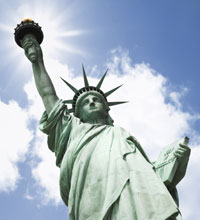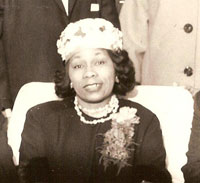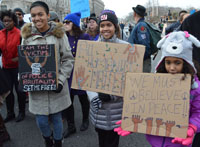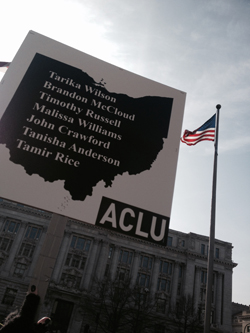News & Commentary
Recognizing African-American Advocates, Past and Present
Black History Month is a time to celebrate and reflect on African-Americans who have made great contributions to our country. The ACLU wants to acknowledge the impact of black activists, both past and present, who have made our work stronger. Founding Member James Weldon Johnson, who helped found the ACLU in 1920, was an early civil rights activist whose biggest passion for activism was to teach and write. The NAACP described Johnson’s philosophy “that it was important for blacks to produce great literature and art. By doing so, Johnson held that blacks could demonstrate their intellectual equality and advance their placement in America.” As a creative writing professor for Fisk University, much of his teachings focused on racial advancement, using it as a tool to address inequalities for African-Americans. Some of his most famous work includes The Autobiography of an Ex-Colored Man and God’s Trombones: Seven Negro Sermons in Verse. Time Doesn’t Heal All. Fast forward to present day, though strides have been made, we are far from equality.
By Regina Morin

Seeking the Right Questions On Race and Criminal Justice Reform
Photograph courtesy of Rachel Woods You will never find a solution without asking the right questions. Last week, Columbus hosted two different gatherings intended to address tensions between communities of color and law enforcement. While part of the same conversation, both brought different people and different approaches to find solutions. At the end of the day, they raised important questions around race and criminal justice reform. Wednesday: A National Initiative On Wednesday, the first meeting of the National Initiative on Building Community Trust and Justice convened at Capital Law School. Funded by a U.S. Department of Justice grant, this program attempts to develop concrete proposals for fostering racial reconciliation, recognizing implicit bias, and advancing procedural justice. Representatives from the DOJ, criminal justice researchers, and policy experts are traveling the country to engage in dialogue with community members. The purpose and goals of the initiative offered an encouraging sign that the outrage felt across the nation has been heard at the highest levels of government. Demands from the streets, churches, and community centers across the country have secured a place on the federal agenda. The speakers expressed their optimism about the program and their desire to hear what local communities have to say. But as the third panel of experts took their places in the front of the room, it seemed that the time allotted for outside voices had been a secondary consideration. Thursday: People First On Thursday, charter buses lined up near the Ohio Statehouse as people from across Ohio came together for the People First Assembly. This event, coordinated by the Ohio Organizing Collaborative, brought together community members and local leaders to tell their stories about the criminal justice system to the offices of their state representatives.
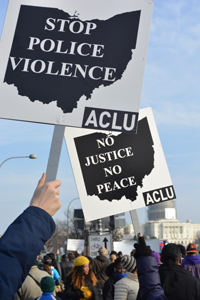
Stay Informed
Sign up to be the first to hear about how to take action.
By completing this form, I agree to receive occasional emails per the terms of the ACLU’s privacy statement.
By completing this form, I agree to receive occasional emails per the terms of the ACLU’s privacy statement.

